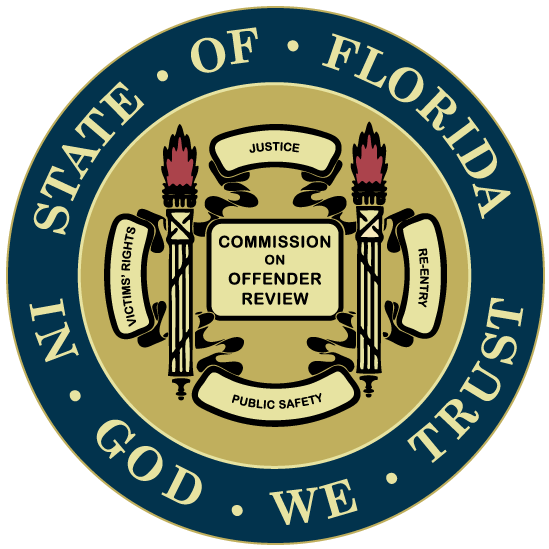Parole
In 1983, under Sentencing Guidelines, the Commission retained paroling authority only for inmates whose offenses were committed prior to October 1, 1983. In addition, currently all inmates who committed:
- any inmate who committed a first degree murder, a felony murder, or the crime of making, possessing, throwing, projecting, placing, or discharging a destructive device (or the attempt of) prior to May 25, 1994;
- any inmate who committed all other capital felonies prior to October 1, 1995;
- any inmate who committed a continuing criminal enterprise (violation of s. 893.20, F.S.) prior to June 17, 1993;
- any inmate who committed a murder of a law enforcement officer (and other specified officers) prior to January 1, 1990;
- any inmate who committed a murder of a justice or judge prior to October 1, 1990;
- any inmate who committed a felony prior to October 1, 1983, or those elected to be sentenced “outside the guidelines” for felonies committed prior to July 1, 1984; and
- any inmate who received a habitual felony offender sentence prior to October 1, 1988 are eligible for parole consideration.
Conditional Release
In 1988, the Florida Legislature created the Conditional Release Program and placed it under the administration of the Commission (see Chapters 947, 948, and 960, Florida Statutes). Conditional Release requires mandatory post-prison supervision for inmates who are sentenced for certain violent crimes and who have served a prior felony commitment at a state or federal correctional institution , or who are sentenced as a habitual offender, violent habitual offender, violent career criminal, or court designated sexual predator. Unlike parole, conditional release is not discretionary release.
Upon release from prison, inmates who are subject to conditional release are supervised for a period of time equal to the gain-time that they received in prison. These offenders are subject to strict conditions of supervision set by the Commission and this supervision can be revoked and the releasee returned to prison if the Commission determines that a willful and substantial violation of supervision has occurred.
Conditional Medical Release
In 1992, the Florida Legislature created Conditional Medical Release (see Chapters 947, 948, and 960, Florida Statutes). This a discretionary release allowing the Commission to release inmates on supervision who the Florida Department of Corrections deem “terminally ill” or “permanently incapacitated” and who are not a danger to others. This supervision can be revoked and the releasee returned to prison if the Commission determines that a willful and substantial violation of supervision has occurred.
Addiction Recovery Supervision
In 2001 The Legislature created the Addiction Recovery Supervision Program and placed it under the Commission’s administration (see Chapters 944, 947, 948, Florida Statues).
This program requires mandatory post-prison supervision for offenders released from a state correctional facility who have a history of substance abuse or addiction or have participated in any drug treatment, and have not been convicted of a disqualifying offense.
The law requires the Commission to set the terms and conditions of supervision, this supervision can be revoked and the releasee returned to prison if the Commission determines that a willful and substantial violation of supervision has occurred.
Control Release
In 1989, the Florida Legislature created the Control Release Authority (see Chapters 947 and 948, Florida Statutes). This program is a prison population management system administered by the Commission to maintain the prison population between 99 and 100 percent of its total capacity.
The Commission does not currently review the inmate population for discretionary release under this authority as there are sufficient prison beds for the current prison population. There are, however, a small number of control releasees who are still under supervision. This supervision can be revoked and the releasee returned to prison if the Commission determines that a willful and substantial violation of supervision has occurred.
